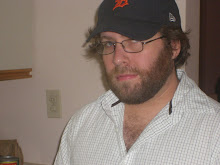
I still recall my early days here at IU. Those clumsy first weeks in a graduate creative writing program, when you introduce yourself from you (in my case adoptive) home state (Montana) and try to push the virtues of that place on the others. Being education in Montana and being a writer, it pretty much went without saying that I had to push the whole Richard Hugo thing. I was surprised by the number of my fellow students who had no idea who the man was, let alone anything about his book The Triggering Town. Really, this is a cornerstone type book in any writer's collection.
Hugo's book is quiet short (just over a hundred pages). But it packs that sort of terse depth that one often associates with his poetic works. For those who don't know, Hugo was a professor at University of Montana back in the day. He shares that magical space of awe of Montana poetics with Patricia Goedicke also of the same school's fame. Be a poet from the Northwest (Seattle) you can really feel the landscape pour through in his work. In this collection of his essays, you can see the origins of it. One whole chapter/essay is pretty much just a collection of his triggers for good poems.
But this collection is worth it, just for the final two chapters. This chapters most brilliantly illustrate the way in which Hugo pieced together his work from the experiences around him. The first of the two is centered around his return to Italy in 1963 (Hugo fought in the war) and a few of the poems that came out of that experience. His last chapter focuses on his time working for Boeing and explores this great story that leads to a great poem. I'm trying to give much away, here. To hear Hugo on this level is to apprecite him beyond his verse and into his mind as a teacher.
I'm terribly fascinated by the places where poetics and prose merge. Those that pull these type of sections off best, tend to be the writer's I hold dearest. I say this only because a book such as Hugo's illustrates the ways in which life experience can translate into poetics and possibly great fiction. For those that don't know Hugo and fancy themselves writers I say it's about time you made friendly.


No comments:
Post a Comment